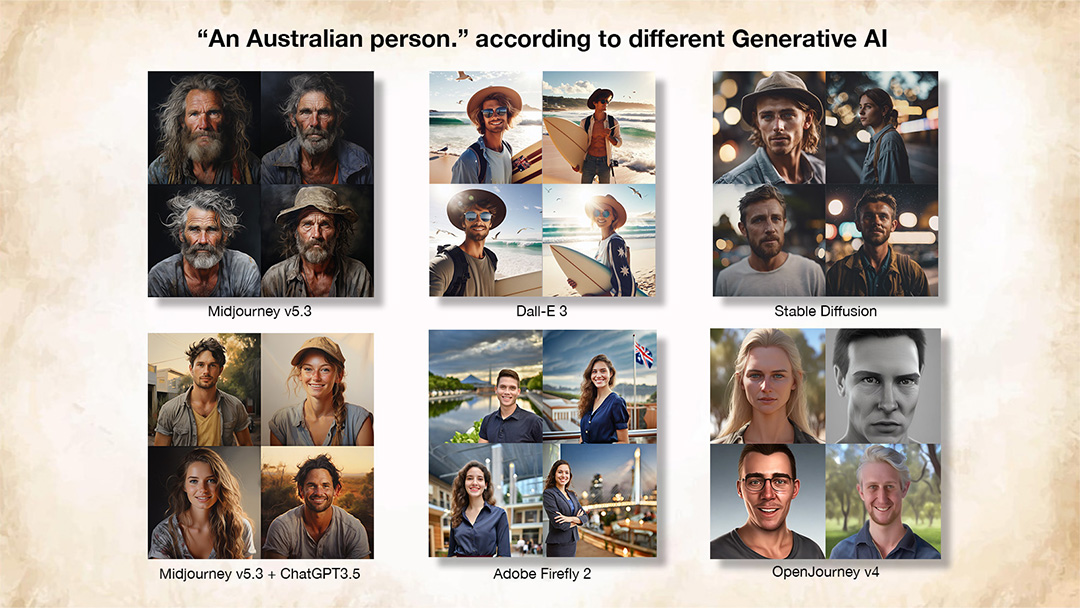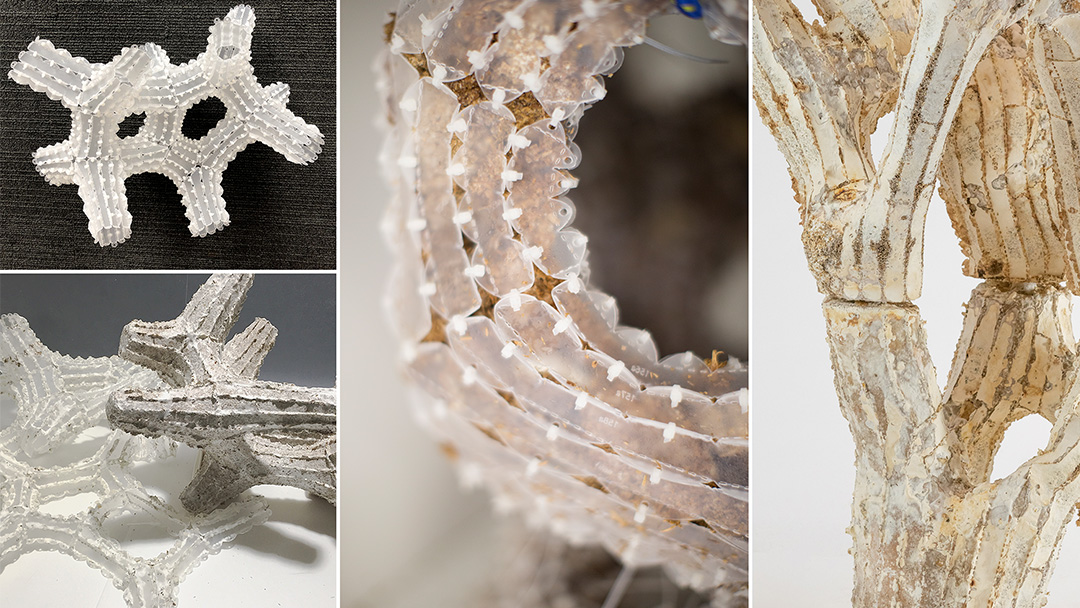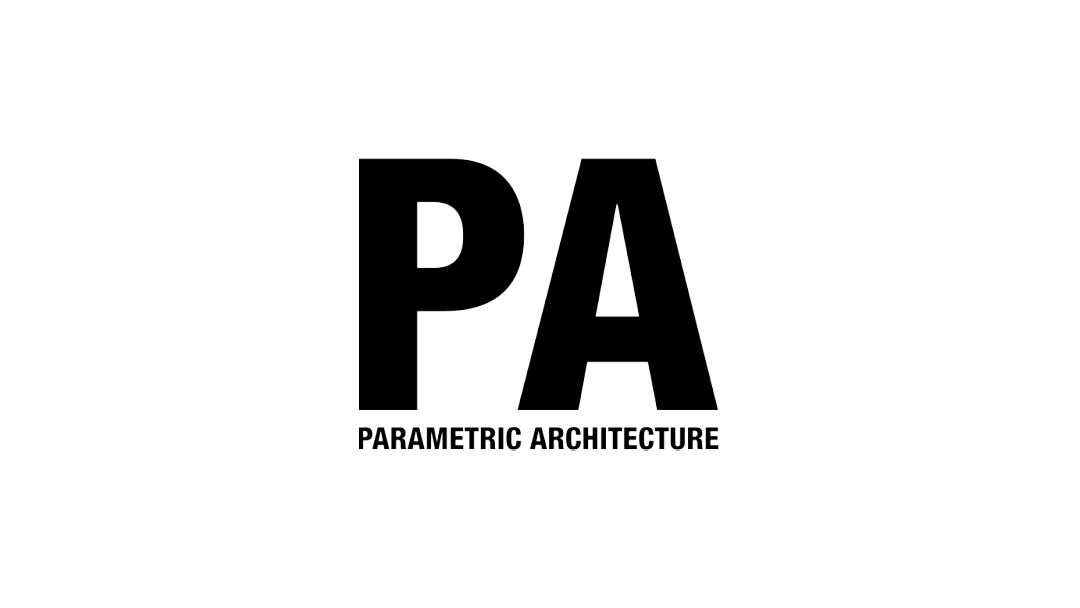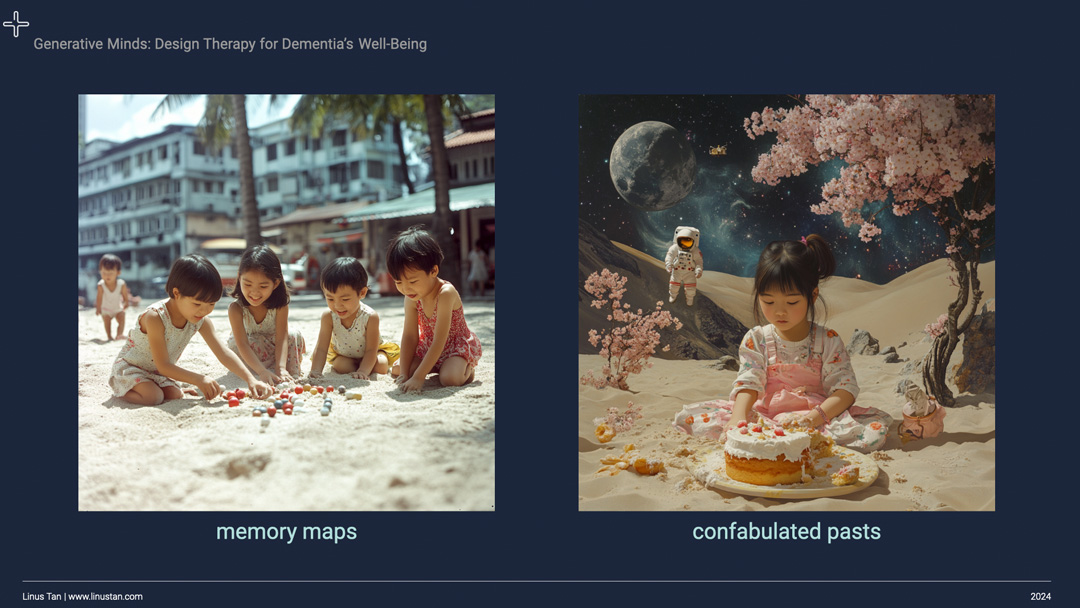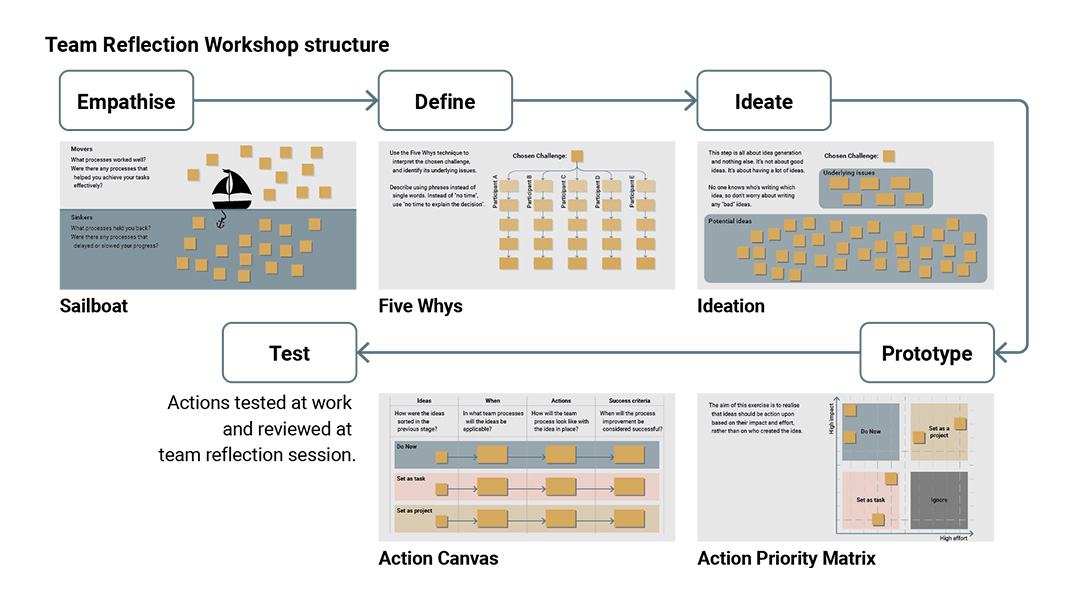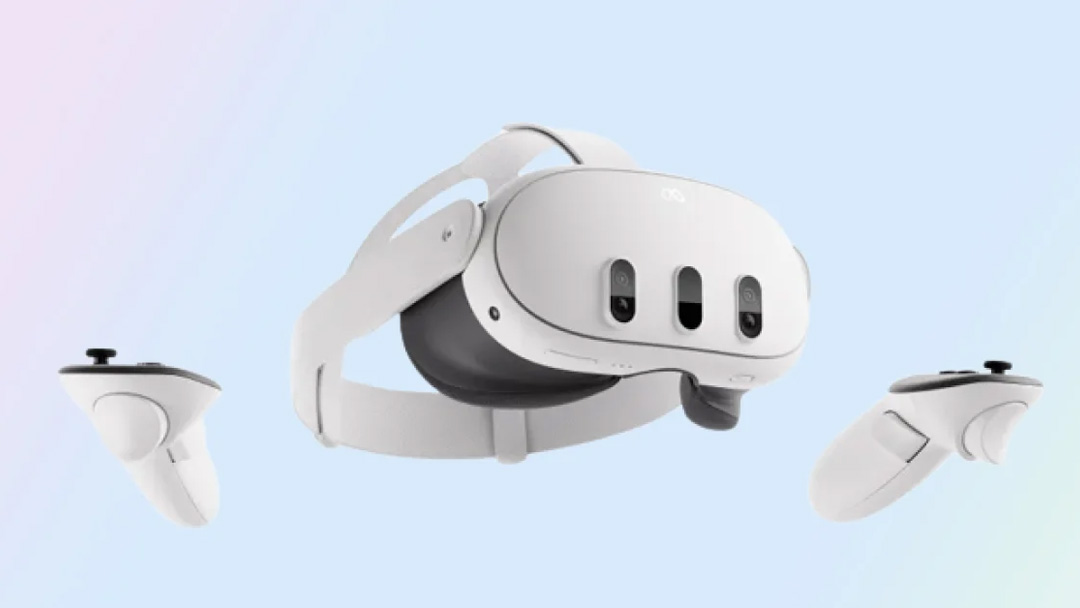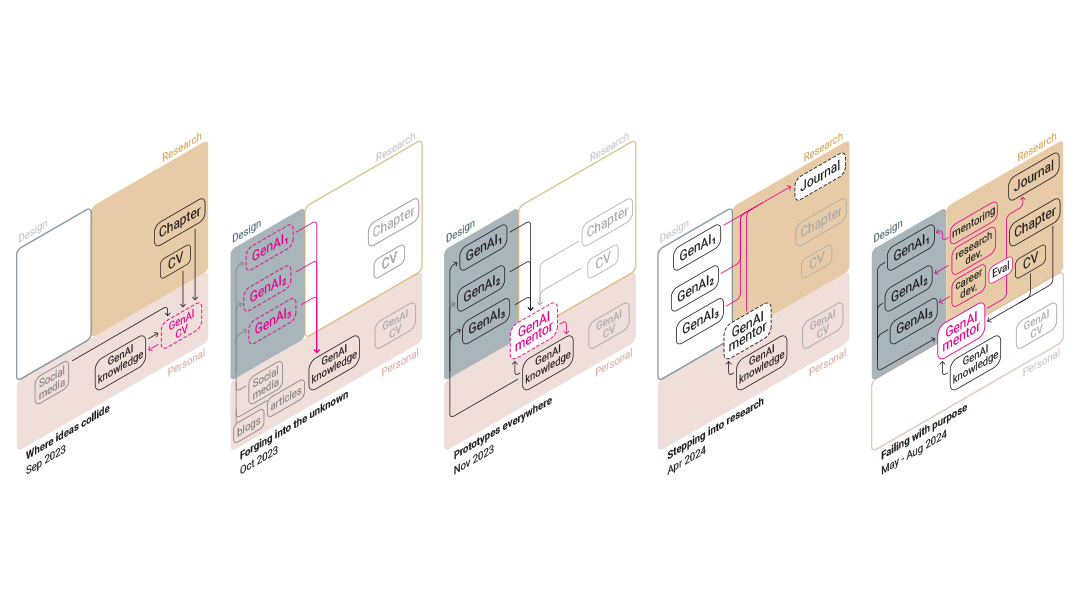Linus Tan, Ph.D.
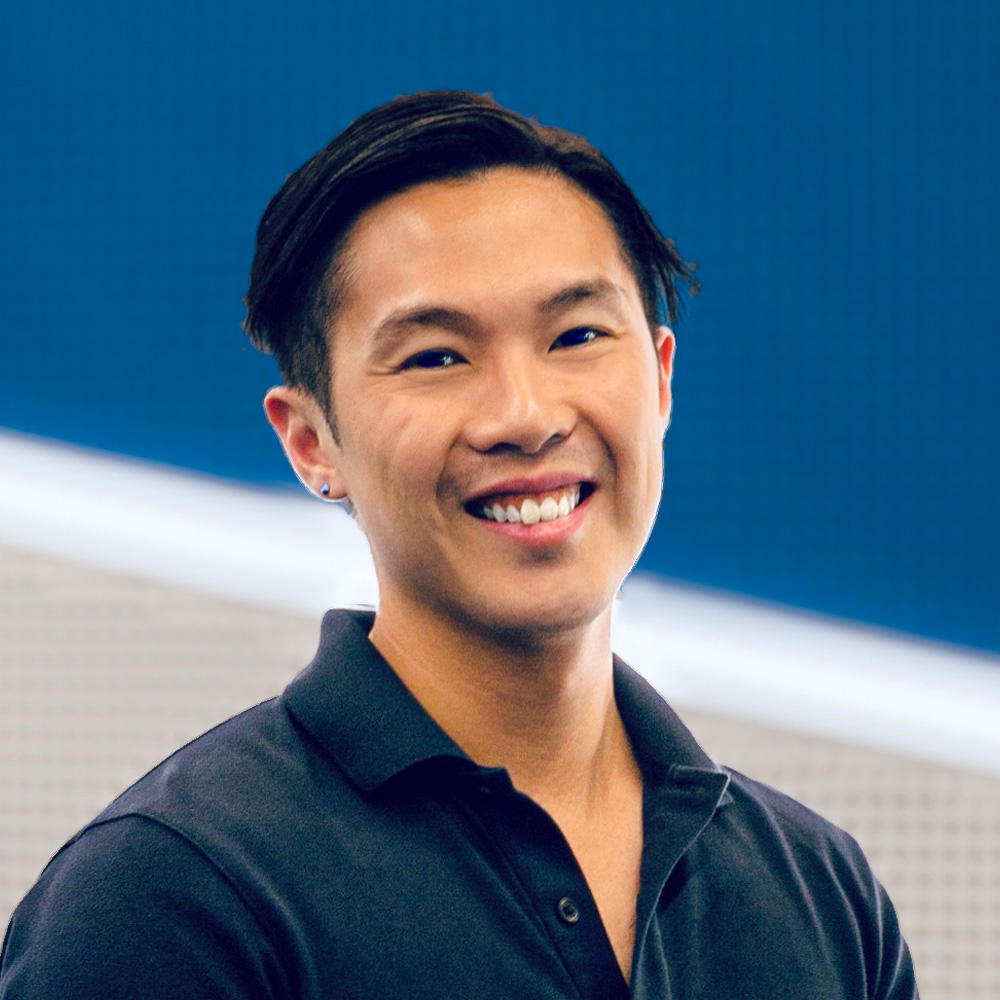
Hello, I’m Linus.
I am a researcher in design and AI at Swinburne University of Technology.
I study how design teams think, behave, learn, and how Generative AI changes their cognitive processes, actions, and learning methods.
PS: My website is not finished always growing.

Recent publications | All publications
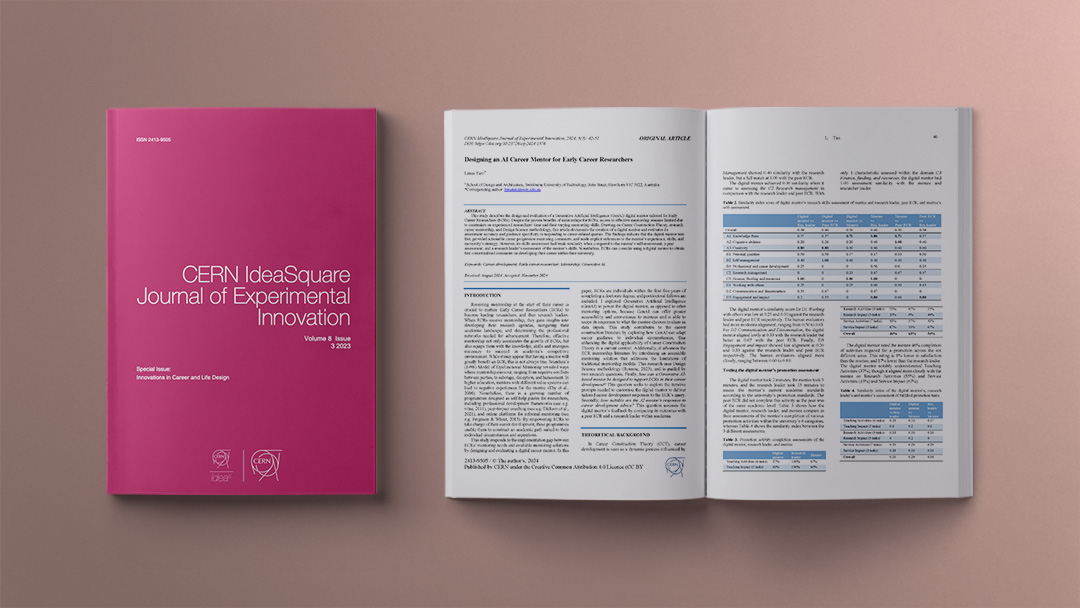
Designing an AI mentor for early career researchers
in CERN IdeaSquare Journal of Experimental Innovation
This study describes the creation of a Generative AI career mentor tailored for Early Career Researchers (ECRs). Drawing on Career Construction Theory and research career mentorship, this research uses Design Science methodology to create and evaluate Generative AI mentor chatbot. To evaluate the design, the AI mentor’s assessment and guidance (i.e. the AI outputs) are compared and critiqued against the researcher’s self assessment, a colleague’s assessment, and a supervisor’s assessment.
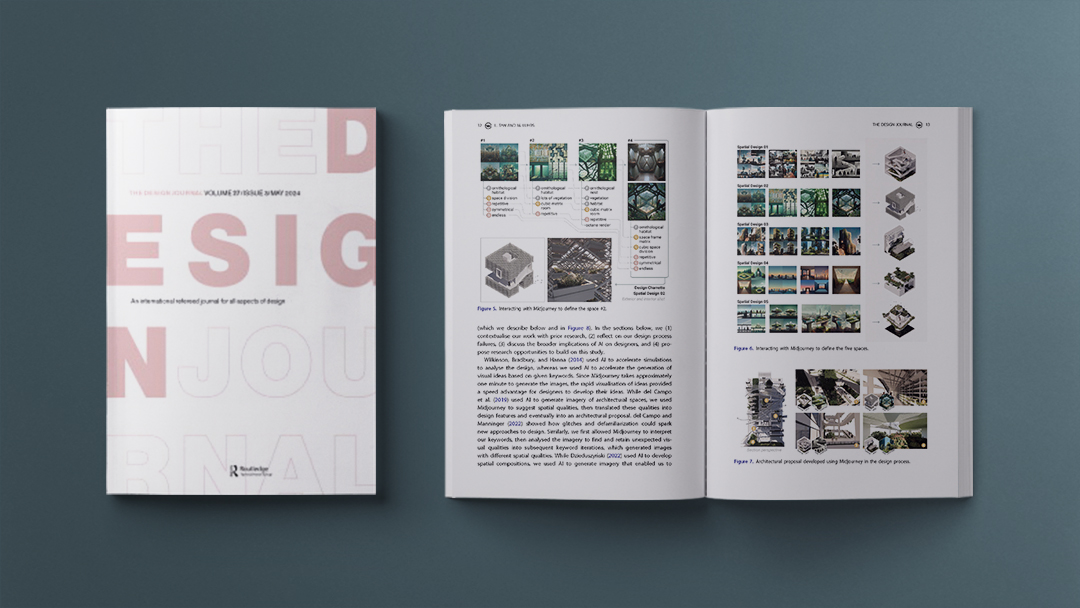
Using GenAI Midjourney to Enhance Divergent and Convergent Thinking in Architectural Design
in The Design Journal
Trending, Most read, & Most cited article
Architects use a range of tools, from the traditional pencil to Virtual Reality technologies to prototype and articulate their creative designs. In recent years, Generative Artificial Intelligence (GenAI) software has reached the mainstream and there is an exponential appearance of GenAI images that portray architectural designs. This article documents an architectural design methodology that uses Midjourney, a text-to-image GenAI software, as a design tool that enhances architects’ creativity.
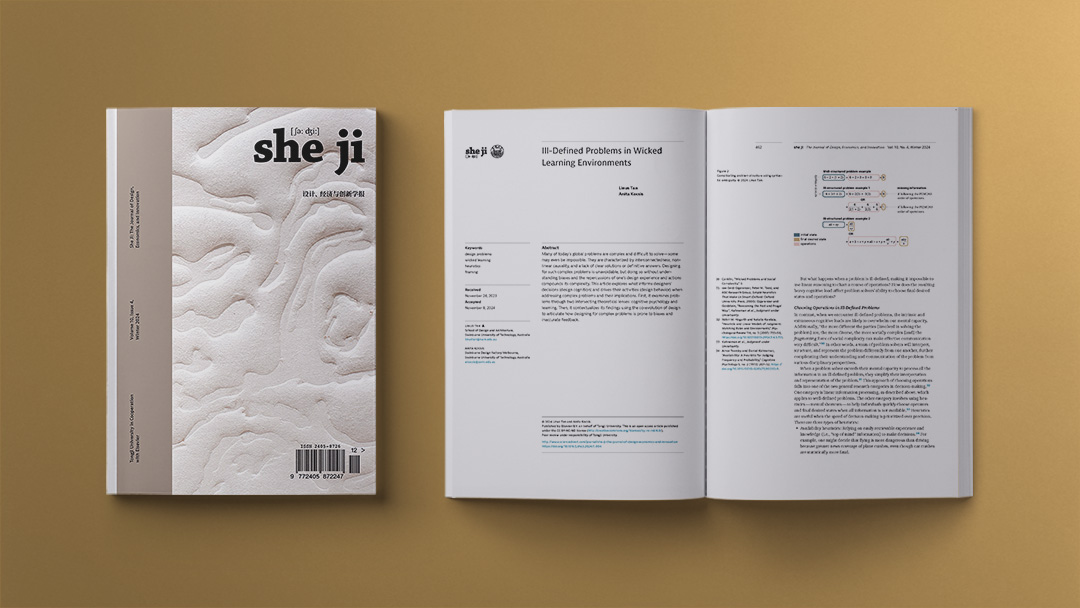
Ill-Defined Problems in Wicked Learning Environments
in She Ji: The Journal of Design, Economics, and Innovation
Many of today’s global problems are complex and difficult to solve—some may even be impossible. Designing for such complex problems is unavoidable, but doing so without understanding biases and the repercussions of one’s design experience and actions compounds its complexity. This article explores what informs designers’ decisions (design cognition) and drives their activities (design behavior) when addressing complex problems and their implications.
Engagements | All engagements
Learning with Country: Culturally responsive design education
Knowledge sharing with emerging educators | 18 March 2025
How can design education genuinely engage with Indigenous knowledge without tokenism? As a non-Indigenous educator, I’ve sought to integrate Indigenous ways of knowing into my design curriculum—not as an add-on, but as an essential part of design practice. In this talk, I’ll share my journey: the challenges, learnings, and moments of reflection as I navigate this space with care and humility. I’ll discuss the tensions of working within institutional structures, the importance of deep listening and reciprocity, and the ways I’ve adjusted my teaching to be more culturally responsive. This is not a presentation of best practices but an honest conversation about the complexities, responsibilities, and transformative potential of Learning with Country in design education.
Breaking Up with Copilot:
Other useful AI tools in higher education
AI in Education Conversation Series | 14 March 2025
AI is rapidly transforming the way we teach and Copilot – the commonly endorsed AI in higher education – the only technology option? This conversation dives into the diverse ecosystem of AI tools beyond Copilot and explores their practical applications in education and professional practice. Join us as we unpack how to integrate AI tools into daily workflows, assess their capabilities and limitations, and navigate ethical considerations. Whether you’re selecting the right AI tool for specific tasks or looking ahead at future trends in AI-powered education, this session offers real-world insights and strategic guidance to help you stay ahead in the evolving AI landscape in higher education.
Using GenAI in Lesson Preparation to Enhance Student Engagement
AI in higher education presentation | 07 February 2025
I used GenAI in my postgraduate Design Innovation studio to streamline lesson preparation and craft engaging multi-modal learning experiences. This approach has significantly reduced preparation time whilst enabling more dynamic, contextually-relevant content delivery. The evidence shows enhanced student engagement and improved comprehension of complex concepts, particularly through the integration of contemporary real-world examples.
TEDx Talk:
Changing our creative flow for GenAI
Presentation for general public | 12 September 2024
As Generative AI technologies evolve, they not only become more efficient at mimicking human creativity, but also fundamentally challenge our approaches to this complex trait. Do outputs from Generative AI truly qualify as ‘creative’? How are our creative inputs being amplified or diminished by these technologies? And finally, how must we adapt our creative skills to maximise the benefits of AI-augmented creativity?
Teaching and supervisions | All teaching
Higher degree by research
GenAI in Design Sensemaking
This industry-based research investigates How can designers use AI to augment their sensemaking capabilities for understanding user, stakeholder and system needs in the discovery phase of design projects?
- Supervision team: Jeni Paay, Linus Tan
GenAI for Architectural Co-Design
This research employs Design Research Methodology to examine How can image GenAI influence and transform early phases of a collaborative design process for innovative and creative placemaking?
- Supervision team: Charlie Ranscombe, Linus Tan
GenAI Aircraft Design Optimisation
This research investigates the intersection of design-driven innovation, generative artificial intelligence (GenAI), and the role of designers acting as key interpreters in new product development (NPD). The research explores how leveraging GenAI in the metaproject phase of NPD by augmenting designers acting as key interpreters can increase their capacity to foster radical innovation and the success of these innovations.
- Supervision team: Anita Kocsis, Linus Tan
Indigenous Wisdom in Design
This research employs pluriversal design to learn from Traditional ecological knowledge (TEK), which is informed by ‘slow knowledge’ that was place-based and embedded within local cultures (Orr 2004; Papanek 1995), and towards the pluriversal futures where no living being exists independently of the Earth and where humans and non-humans are in ever-changing entanglements as a part of the Earth’s vital forces and processes (Escobar, 2015).
- Supervision team: Anita Kocsis, Linus Tan
Postgraduate subjects
Architecture Design Thesis
This subject guides design students become experts in designing architecture and urban areas by interrogating social and community challenges related to design. Students learn to research independently, then develop a well-thought-out design strategy. They also create physical and digital models, evaluate them, and clearly present their ideas and processes, demonstrating how they integrated different knowledge like environment, materials, and culture into a holistic design proposal.
Architecture Design Research C
This subject facilitates students to improve their creative thinking by developing and refining speculative design ideas that address complex, modern global issues. They will use flexible learning skills to handle unpredictable results and link difficult or opposite elements, learning from mistakes through design interactions while using architecture or urban design to solve design and research challenges.
Design-led Research
This subject teaches students a Research for, into, and through Design, where design activities are used to explore and gain knowledge. Students will create and reflect on design projects, considering how they fit within social, cultural, and technological settings, while using design to investigate questions and find solutions.
view Studio (Un)Real: Pluriversal v2
view Studio (Un)Real: Pluriversal v1
Applied Innovation Studio
This subject facilitates learning and practising design, focusing on prototyping skills. Students enhance their innovative approaches and use of technology in design, storytelling, and making to create future-focused design outcomes.
Design Technology
This subject facilitates learning and practicing design, focusing on developing technical, creative, and communication skills. Students enhance their innovative approaches and use of technology in design, understanding spatial, material, and economic aspects, and exploring new material and digital fabrication methods.
Undergraduate subjects
Architecture Design Studio 1
In this subject, students learn architectural design methods to develop small to medium-sized projects, using 2D drafting and 3D modeling for communication. They will also gain knowledge of different spatial development techniques for turning ideas into concepts.
view Studio (Un)Real: Narratives v3
Architectural Communication 2
In this subject, students design installations that communicate with occupants, blending technology and human interaction. Over twelve weeks, students explore different ways design represent hidden meanings, create animated prototypes, and study design elements as parts of dynamic systems, enhancing their understanding and skills in viewing space as interactive networks.
view Studio (Un)Real: Allegories v3


